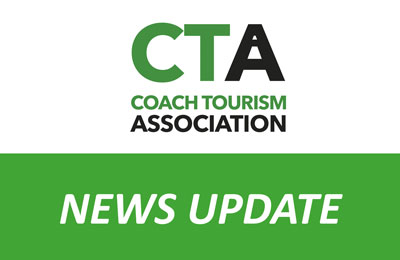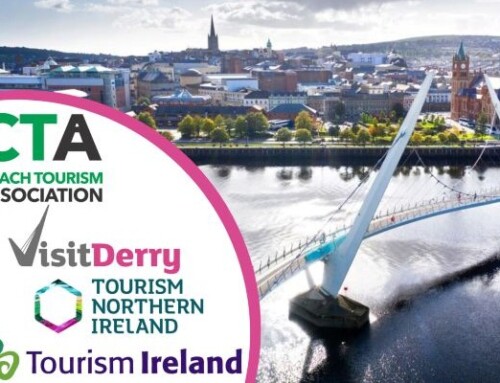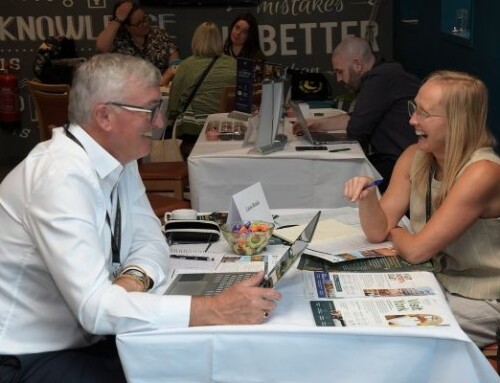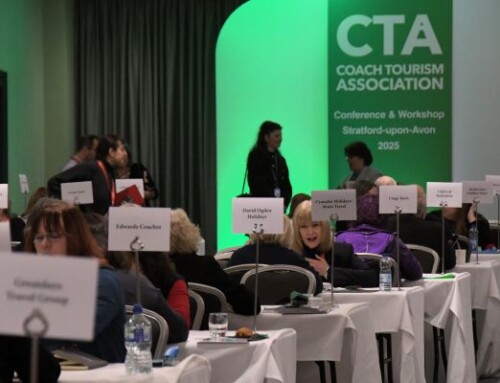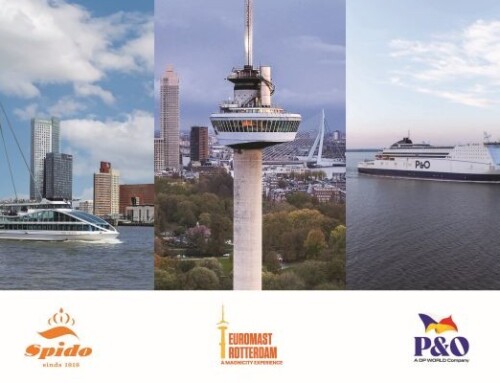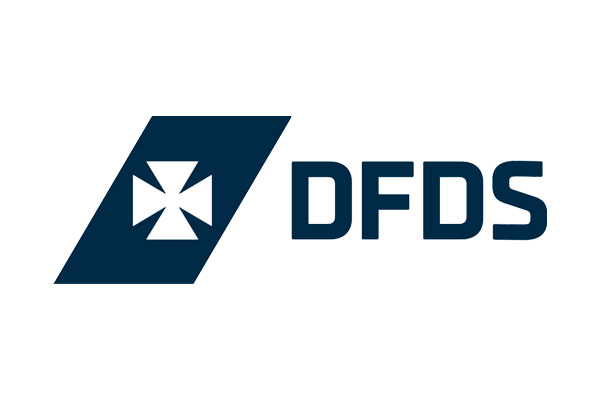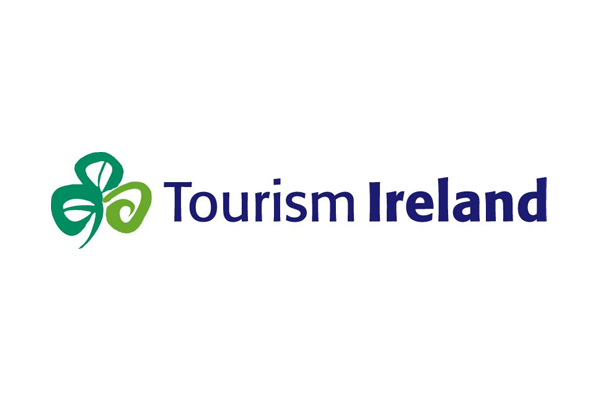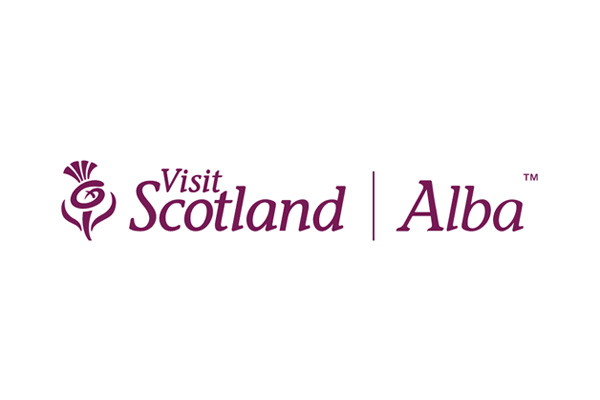COVID-19 Updates – week commencing 05/07/21
More updates of developments from the government and various links to interpretation and guidance.
Go to date:
5 July 2021 …
Tourism Alliance update:
Boris Johnson’s Update
The main points from the Prime Minister’s update are:
-
- The final decision on moving to Step 4 on 19th July will take place on 12th July but it is relatively certain that Government will agree to removing most remaining restrictions as planned.
- All businesses will be able to reopen, including nightclubs.
- Face masks will no longer be legally required
- Social distancing rules will no longer apply
- All legal limits on indoor and outdoor meetings will go
- People will no longer be told to work from home
- Test and trace will continue, but the government wants to replace isolation with daily testing.
- Covid-status certificates will not be required by the government to access venues. But businesses can choose to use them.
- The Government will continue to work with the travel industry to allow fully vaccinated UK residents to re-enter the UK from Amber countries with the need to self-isolate and an announcement should be made on Thursday – the implication is that this will not apply to fully vaccinated people visiting the UK from Amber countries
- Plans to replace bubbles for school pupils will be announced tomorrow.
The Government produced one further document last night on the move the Step 4 (Covid 19 Response: Summer 2021). While much of it simply collates the information in the other documents that I sent round yesterday, it does provide a few more useful details, which is highlighted below.
- All remaining limits on social contact (currently 6 people or 2 households indoors, or 30 people outdoors) will be removed and there will be no more restrictions on how many people can meet in any setting, indoors or outdoors.
- All settings will be able to open, including nightclubs. Large events, such as music concerts and sporting events can resume without any limits on attendance or social distancing requirements.
- All restrictions on life events such as weddings, funerals, bar/bat mitzvahs and baptisms will be removed, including the remaining restrictions on the number of attendees. There will be no requirement for table service at life events, or restrictions on singing or dancing.
- COVID-status certification will not be required in law as a condition of entry for visitors to any setting. Organisations are already able to ask visitors for proof of COVID-status, as long as they meet existing legal obligations including under equality law. The Government is providing a way for individuals to easily demonstrate their COVID-status. This can be achieved by completion of a full vaccine course, a recent negative test, or proof of natural immunity – through the NHS COVID Pass on the NHS app.
- The legal requirements to wear a face covering will be lifted in all settings. To help reduce the spread of COVID-19, published guidance will advise that wearing a face covering will reduce your risk and the risk to others, where you come into contact with people you don’t normally meet in enclosed and crowded spaces.
- Social distancing rules (2 metres or 1 metre with additional mitigations) will be lifted. You should continue to consider the risks of close contact with others, particularly if you are clinically extremely vulnerable or not yet fully vaccinated. Social distancing will only be required in limited circumstances: ports of entry for passengers between disembarkation and border control in order to manage the risk of Variants of Concern being transmitted between individuals; and people who are self-isolating should also continue to socially distance from others, particularly where they have had a positive test. Health and care settings will continue to maintain appropriate infection prevention and control processes as necessary and this will be continually reviewed. Guidance will be updated based on the latest clinical evidence this summer.
- For individual settings where the risks of rapid spread are particularly acute, Directors of Public Health, in consultation with setting operators and relevant departments, will be able to advise that social distancing is put in place if necessary to control outbreaks. This should be targeted, time limited, and apply to settings characterised by enclosed and vulnerable communities such as prisons, immigration removal centres and homeless shelters.
- It is no longer necessary for Government to instruct people to work from home. Employers can start to plan a return to workplaces.
- Regulations that place COVID-secure requirements on businesses, including table service, and distancing between tables, will be lifted. ‘Working Safely’ guidance will be updated to provide examples of sensible precautions that employers can take to reduce risk in their workplaces. Employers should take account of this guidance in preparing the risk assessments they are already required to make under pre-pandemic health and safety rules.
- Businesses must not require a self-isolating worker to come to work, and should make sure that workers and customers who feel unwell do not attend the setting.
- Businesses will be encouraged to ask staff and customers to clean their hands regularly and clean surfaces that people touch regularly. The Government will provide guidance on how businesses can reduce unnecessary contact in the workplace, where it is practical. Operators will still be encouraged to use outside space where practical, and to consider the supply of fresh air to indoor spaces. Carbon dioxide (CO2) monitors could be used to help identify where a space is poorly ventilated with businesses encouraged to take steps to improve ventilation if CO2 readings are consistently high.
- Businesses will be encouraged to display QR codes for customers to check in using the NHS COVID-19 app, to support NHS Test and Trace, although it will no longer be a legal requirement.
- The Government will change the controls that apply in early years, schools, colleges and higher education institutions to maintain a baseline of protective measures while maximising attendance and minimising disruption to children and young people’s education. The Government’s intention is that from step 4 children will no longer need to be in consistent groups (‘bubbles’), and early years settings, schools or colleges will not be required to routinely carry out contact tracing, which will help to minimise the number of children isolating. Contact tracing in specific educational settings would only be triggered if deemed necessary in response to a local outbreak.
- The Government also intends to exempt under 18s who are close contacts of a positive case from the requirement to self-isolate, in line with the approach for those who are fully vaccinated (as set out below). Further detail will be published in due course and the changes are likely to come into effect later in the summer. There will be no restrictions on in-person teaching and learning in universities.
Social Distancing Review
The findings of the Social Distancing review have been published. There are no recommendations attached to the review – it simply states the rationale and impacts associated with social distancing
Certification Review
The certification Review has also been published. The conclusion of this review is that
“Having considered a wide range of evidence as part of the review, the Government has concluded that it will not mandate the use of COVID-status certification as a condition of entry for visitors to any setting at the present time.”
Events Research Programme Findings
The findings from phase one of the Events Research Programme have been published. There are no recommendations but instead there are six observations which I think are pretty much the same as they were in the draft findings that were published a week or two ago
Observation 1:
The variation of transmission risk factors within a venue matters as well as the differences in risk between types of venue. Outdoor spaces are generally lower risk than indoor spaces. However, all venues are different and may have indoor spaces such as toilets, food/drink concessions and corridors which can pose higher risks
Observation 2:
Large unstructured gatherings indoors where there is significant mixing of people in close proximity typically pose a higher risk.
Observation 3:
The ERP pilots demonstrated how risk mitigation measures could be put in place to reduce and manage the risks identified for events, building on previous SAGE-EMG’s conclusions
Observation 4:
Compliance with requirements to wear a face covering and socially distance was mostly high, with lower compliance observed in higher risk areas, exacerbating overall transmission risk without sufficient mitigations in place.
Observation 5:
Pre-event lateral flow testing, questionnaire-based screening and consent to link event booking and test result data, as conditions of admittance to events, were accepted by audiences for most types of events and helped public health teams to respond to any potential outbreaks
Observation 6:
It is challenging to generate robust, generalisable evidence of the transmission risk associated with particular events. Phase I pilots were necessarily limited in scale, and took place during a period of low prevalence of the virus. Further they were insufficient in scale, scope and study designs to generate any direct evidence based on transmission data. Therefore, evidence on case numbers should be treated with caution
Guidance For Visa Applicants And Temporary Residents Updated
This must be the more revised piece of guidance. Today it has been updated again to say that the concession that has been granted to people who left the UK with valid leave before 17 March 2020 and intended to return to the UK and make an application for Indefinite or Further Permission to Stay, but were unable to do so before your leave expired because of travel restrictions related to coronavirus has been extended to 19th July 2021.
This may help some foreign nationals working in the UK tourism industry who left to be with family during the pandemic and have not yet been able to return to the UK. Further details on how to apply for this concession are available on the following link.
ONS CJRS Statistics
ONS have produced a report on current CJRS usage. The data in the survey is for 31st May so it relates to the period after the move to Step 3 on 17th May when many tourism and hospitality businesses were able to open (albeit with capacity and social distancing restrictions). The provisional figures show that the number of people on furlough has decreased from 3.5 million on 30 April to 2.4 million on 31 May 2021. Of the 2.4m people on furlough an estimated 589,500 are in the accommodation and food services sector and 144,200 in the arts and entertainment sector. If this is taken as a proxy for the tourism industry, then this means that just under a third of all people on furlough are in tourism and hospitality.
One of the main points from the report is that seven of the ten sectors with the highest rates of staff on furlough at 31 May 2021 were :
-
- passenger air transport (57%)
- hotels and similar accommodation (57%)
- travel agency and tour operator activities (51%)
- photographic activities (43%)
- beverage serving activities (43%)
- creative; arts and entertainment activities (39%)
- amusement and recreation activities (37%)
- renting and leasing of personal and household goods (36%)
- other reservation service and related activities (33%)
- manufacture of wearing apparel (32%)
What is also interesting is that the 10 local authorities with the highest rates or furlough are:
-
- Newham (15%)
- Hounslow (14%)
- Brent (14%)
- Crawley (14%)
- Haringey (13%)
- Barnet (13%)
- Redbridge (13%)
- Waltham Forest (13%)
- Ealing (13%)
- South Lakeland in Cumbria (12%)
Eight of these 10 are in London which is heavily impacted by restrictions on international travel, a soft domestic tourism market and office workers remaining at home, while Crawley is where Gatwick Airport workers live and South Lakeland is the core of the Lakeland National Park.
These figures highlight the ongoing problems facing the sector and the need for the Government to extend support scheme until businesses can fully reopen and the prospect that some sectors will probably need support through to the 2022 season.
EU Settlement Scheme Still Open for Some Applicants
Although the EU Settlement Scheme closed yesterday, there is still the ability for some people to apply if either:
-
- they have a later deadline – for example, they’re joining a family member in the UK who was living in the UK by 31 December 2020
- they have ‘reasonable grounds’ for being unable to apply by 30 June 2021 – for example, they had an illness or were the victim of domestic abuse
- they already have pre-settled status, and they’re applying for settled status.
Further details on still being able to apply for settled status is available on the following link
https://www.gov.uk/settled-status-eu-citizens-families
Guidance for Visa Applicants and Temporary Residents
The guidance has been updated for people applying to enter the UK or remain on the basis of family or private life. The main changes are that
-
- If you’re unable to travel back to the UK due to coronavirus travel restrictions and your leave has expired, a short break of up to 6 months in continuous residence will be overlooked.
- If you’ve experienced a loss of income due to coronavirus up to 31 October 2021, the Home Office will consider employment income for the period immediately before the loss of income, provided the minimum income requirement was met for at least 6 months immediately before the date the income was lost.
- If your salary has reduced because you’re furloughed they will take account of your income as though you’re earning 100% of your salary.
- If you’re self-employed, a loss of annual income due to coronavirus between 1 March 2020 and 31 October 2021 will usually be disregarded, along with the impact on employment income from the same period for future applications.
ALVA Visitor Sentiment Research
I’ve attached a copy of ALVA’s latest visitor sentiment research which covers the period 17th – 22nd June. The key points from the research are:
-
- Since late April, there has been a positive shift in appetite for visiting attractions when they re-open. In particular, some of those ‘waiting to see what happens for a short while’ are now ready to visit, although this hesitant group still represents around 40% of the market
- Appetite for visiting has continued to grow across all age groups, in the South of England, Wales and Scotland, although it has stalled elsewhere in England – particularly the North West
- Although confidence is clearly growing and anxiety around using facilities falling, 60% still express fear or concerns about visiting – especially on measures to limit crowds / keep distancing. Three-quarters of the attractions-visiting public are not yet ready to remove Covid-19 safety measures, the same as at end April
- Theatres and indoor performances are the attractions / events about which most members of the visitor-attraction going public are most hesitant to attend or visit
- Although falling slightly since the end of April, there remains notable support for some form of ‘proof of vaccination / exemption’, especially for indoor venues and among the over 55s, once the vaccine has been fully rolled out. Around a third of those who would ordinarily visit indoor attractions/events claim that they would not visit unless all visitors had some form of vaccine proof
- Evidence indicates that vaccine proof would be a trigger for tempting many from the more cautious segments to return to indoor attractions, but may alienate some current visitors
- There has been a strong positive step change in national confidence around use of public transport since late April, following the slight regression in confidence in the month prior to this
- VAT Deferral New Payment Scheme
It is worth noting that this scheme has now closed to new applicants.
https://www.gov.uk/guidance/deferral-of-vat-payments-due-to-coronavirus-covid-19
Northern Ireland Tourism Alliance update:
NI Updates
- Vaccination Programme – 2,070,574 vaccination doses have been administered. 81% of the adult population have received at least one dose with 62% having received both doses.
- Covid-19 Regulations – An updated version of the legislated regulations is now available at The Health Protection (Coronavirus, Restrictions) Regulations (Northern Ireland) 2021 | Department of Health (health-ni.gov.uk)
- Outdoor Events Management of Food & Drink service – we raised a query regarding management of food and drink in outdoor events and the following clarification has been provided – ‘An exemption has been provided for within the regulations which means that events such as outdoor concerts ( which operate under an occasional licence) are not required to accept orders for or provide food and/or drink on a table service basis. I am sure this will be welcome news to many organisers.’
- Removal of need for Green Card – The European Commission have announced that insurance green cards will no longer be required for drivers from Northern Ireland travelling to the South or beyond into other parts of the European Union. The rules haven’t come into force yet and until the EU has fully implemented the change, anyone taking their car to Europe will still need to get a Green Card from their insurer before they head off abroad to countries that require one.
- Tourism Ireland & Tourism Northern Ireland Industry Support – Tourism Ireland and Tourism Northern Ireland have announced the launch of several new initiatives aimed at supporting Northern Ireland industry recovery. As part of the Northern Ireland’s Tourism Recovery Action Plan, Tourism Ireland and Tourism Northern Ireland are together launching these initiatives aimed at supporting industry to undertake sales and marketing activities in international markets, in order to increase international visitor numbers. They are now inviting applications from suitably qualified Northern Ireland industry to undertake the following activities on a cooperative basis in core international markets (Before completing your application, for information and guidance on eligibility, please consult the IMAP Guidelines here.)
- Direct Sales Missions by Northern Ireland industry partners with previous experience in this area – click here
- Marketing campaigns in the Great Britain market by Northern Ireland industry partners with previous experience in this area – click here
- Marketing Campaigns in key international markets (other than Great Britain) by Northern Ireland industry partners with previous experience in this area – click here
- Attendance at B2B or consumer events/shows by Northern Ireland industry with previous experience in this area – click here
CPT update:
THE PRIME MINISTERS ANNOUNCEMENT
ENGLAND 19 JULY – STEP 4
Members will be aware that the Prime Minister held a press conference yesterday at 5PM where he announced the Governments plans for the implementation of Step 4 of the Road Map in England
The main points of particular interest to the PSV sector are:
- Social distancing rules (2 metres or 1 metre with additional mitigations) will be removed
- The legal requirements to wear a face covering will be removed in all settings. The Government will publish guidance that will advise the wearing of a face covering in enclosed and crowded spaces
- Plans to replace bubbles for school pupils will be announced later today
It should be noted that a the final decision on moving to Step 4 on 19 July will take place on Monday 12 July so until that date it is still possible that there will be changes to what will occur
Currently the Safer Transport Guidance for Operators remains in place and this should continue to be followed
This guidance may be removed entirely on 19 July, or substantially amended
CPT will issue further advice and guidance to members before 19 July when the Government makes further guidance available and as the situation develops
Further details of Step 4 can be found on the link below
COVID RESPONSE – SUMMER 2021
MAIN POINTS
The main points are:
- All remaining limits on social contact (currently 6 people or 2 households indoors, or 30 people outdoors) will be removed and there will be no more restrictions on how many people can meet in any setting, indoors or outdoors
- All settings will be able to open without any limits on attendance or social distancing requirements.
- All restrictions on life events such as weddings, funerals, bar/bat mitzvahs and baptisms will be removed
- COVID-status certification will not be required in law as a condition of entry for visitors to any setting. Organisations are already able to ask visitors for proof of COVID-status, as long as they meet existing legal obligations including under equality law
- The legal requirements to wear a face covering will be lifted in all settings. To help reduce the spread of COVID-19, published guidance will advise that wearing a face covering will reduce your risk and the risk to others, where you come into contact with people you don’t normally meet in enclosed and crowded spaces.
- Social distancing rules (2 metres or 1 metre with additional mitigations) will be lifted. You should continue to consider the risks of close contact with others, particularly if you are clinically extremely vulnerable or not yet fully vaccinated. Social distancing will only be required in limited circumstances: people who are self-isolating should also continue to socially distance from others, particularly where they have had a positive test. Health and care settings will continue to maintain appropriate infection prevention and control processes as necessary and this will be continually reviewed. Guidance will be updated based on the latest clinical evidence this summer.
- For individual settings where the risks of rapid spread are particularly acute, Directors of Public Health, in consultation with setting operators and relevant departments, will be able to advise that social distancing is put in place if necessary to control outbreaks. This should be targeted, time limited, and apply to settings characterised by enclosed and vulnerable communities such as prisons, immigration removal centres and homeless shelters.
- It is no longer necessary for Government to instruct people to work from home. Employers can start to plan a return to workplaces.
- Regulations that place COVID-secure requirements on businesses, including table service, and distancing between tables, will be lifted. ‘Working Safely’ guidance will be updated to provide examples of sensible precautions that employers can take to reduce risk in their workplaces. Employers should take account of this guidance in preparing the risk assessments they are already required to make under pre-pandemic health and safety rules.
- Businesses must not require a self-isolating worker to come to work, and should make sure that workers and customers who feel unwell do not attend the setting.
- Businesses will be encouraged to ask staff and customers to clean their hands regularly and clean surfaces that people touch regularly. The Government will provide guidance on how businesses can reduce unnecessary contact in the workplace, where it is practical. Operators will still be encouraged to use outside space where practical, and to consider the supply of fresh air to indoor spaces. Carbon dioxide (CO2) monitors could be used to help identify where a space is poorly ventilated with businesses encouraged to take steps to improve ventilation if CO2 readings are consistently high.
- Businesses will be encouraged to display QR codes for customers to check in using the NHS COVID-19 app, to support NHS Test and Trace, although it will no longer be a legal requirement.
- The Government will change the controls that apply in early years, schools, colleges and higher education institutions to maintain a baseline of protective measures while maximising attendance and minimising disruption to children and young people’s education. The Government’s intention is that from step 4 children will no longer need to be in consistent groups (‘bubbles’), and early years settings, schools or colleges will not be required to routinely carry out contact tracing, which will help to minimise the number of children isolating. Contact tracing in specific educational settings would only be triggered if deemed necessary in response to a local outbreak.
- The Government also intends to exempt under 18s who are close contacts of a positive case from the requirement to self-isolate, in line with the approach for those who are fully vaccinated (as set out below). Further detail will be published in due course and the changes are likely to come into effect later in the summer. There will be no restrictions on in-person teaching and learning in universities.
6 July 2021 …
Tourism Alliance update:
Update on Self-isolation Rules
The new Health Secretary made a statement to parliament today outlining new self-isolation rules that will come into effect on 16th August.
The change will be that anyone who’s a close contact of a positive case will no longer have to self-isolate, if they’ve been fully vaccinated. However, if someone gets their second dose just before, or after, the 16th of August, they’ll need to wait until two weeks after they get the second jab so that the vaccine has time to build the maximum possible protection.
https://www.gov.uk/government/speeches/update-to-parliament-on-self-isolation-rules
Guidance On Fifth SEISS Grant
HMRC has produced new guidance for self-employed people wanting to claim the fifth SEISS payment. To be eligible you must meet all three of the following sets of criteria
-
- Stage 1: Your trading status and when you must have traded
You must be a self-employed individual or a member of a partnership. You must also have traded in both tax years:
2019 to 2020
2020 to 2021
You cannot claim the grant if you trade through a limited company or a trust.
-
- Stage 2: Tax returns and trading profits
You must have:
-
-
- submitted your 2019 to 2020 tax return on or before 2 March 2021
- trading profits of no more than £50,000
- trading profits at least equal to your non-trading income
-
Non-trading income is any money that you make outside of your business. For example, if you also have a part-time job or pension. If you’re not eligible based on the trading profits in your 2019 to 2020 return, HMRC look back at previous years.
HMRC will contact you in mid-July if you’re eligible for the grant based on your tax returns.
-
- Stage 3: Deciding if you can claim
When you make your claim you must tell HMRC that you:
-
-
- intend to keep trading in 2021 to 2022
- reasonably believe there will be a significant reduction in your trading profits due to the impact of COVID-19 between 1 May 2021 and 30 September 2021
-
There is also further guidance on how to calculate your turnover
https://www.gov.uk/guidance/work-out-your-turnover-so-you-can-claim-the-fifth-seiss-grant#contents
How trading conditions could impact your eligibility
How HMRC calculates your trading profit
And how your circumstances could impact you eligibility
Extension to Income Tax and NI Contributions For Tests
HRMC have published updated guidance that covers the extension of the exemptions and disregards to any coronavirus antigen test provided by an employer, for the tax year 2020 to 2021 and 2021 to 2022. This also applies to any reimbursement to an employee for a coronavirus antigen test for the tax years 2020 to 2021 and 2021 to 2022.
8 July 2021 …
Tourism Alliance update:
Wedding Risk Assessment Support
People who are holding a wedding that is being attended by more than 30 guests in a venue that is not being operated in accordance with Covid Secure guidance are required to complete a risk assessment form that can be downloaded from a Gov.uk on the link below For the most part this will only apply to private venues such as people planning to have their wedding at home but there could be circumstances where this applies to a business where the person is hiring a site rather than the services of the business. Therefore it is worth noting that guidance on how the customer should complete the risk assessment form has been updated to say that if they need guidance on how to complete the risk assessment, they should call the Health and Safety Executive
Demonstrating Vaccination Status
The guidance on showing that you are vaccinated through the NHS Covid Pass has been updated to say that those people that have received the single-dose Janssen vaccine will show up on the pass as having received a full course of an approved vaccination.
https://www.gov.uk/guidance/demonstrating-your-covid-19-status
Guidance On Providing Apprenticeships Updated
The guidance to businesses that have taken on apprentices has been updated:
-
- To reflect the change in the return to the workplace which will apply to apprentices as part of Step 4 of the roadmap
- With new references and links to the redundancy support service for apprentices
- To reflect ending of flexibility permitting end-point assessment prior to functional skills qualification achievement
- To reflect an extension of the temporary policy on suspending the requirement for Level 2 apprentices to attempt Level 2 functional skills assessment.
Transport Use
As ever, DfT has published their Thursday update on transport figures over the last week. Somewhat worryingly, the figures show that passenger number of Network Rail have decreased by about 6 percentage points over the last week and are back down below 50% of usual at around 45%. However, other forms of public transport use are stable with the Tube at around 45% or usual and bus services at around 65% of usual.
https://www.gov.uk/government/statistics/transport-use-during-the-coronavirus-covid-19-pandemic
Out of School Guidance
The Department of Education has published a new guidance document for providers of activities, holiday or after-school clubs, tuition and other out-of-school settings offering provision to children. The document, COVID-19: Action for Out-of-school Settings, will apply from Step 4 and removes restrictions such;
-
- keeping children in consistent groups (bubbles)
- wearing face coverings
- limits on parental attendance
- restrictions on group sizes for residential visits.
It also includes information about updating your outbreak management plan and what to do when an individual in your setting tests positive for COVID-19.
Graduate Route Opened
Not Covid related but well worth highlighting considering the problems with recruitment at the moment is that the Home Office has opened applications for the new Graduate Immigration Route. This route provides an opportunity for international students who have been awarded their degree to stay in the UK and work, or look for work, at any skill level for 2 years, or 3 years for doctoral students. The Home Office has published a guidance document on how this route operates.
What will be of particular interest is that after working for 2 years, the applicant can switch to the Skilled Worker route and stay permanently if:
-
- They have a job offer from a Home Office-licensed sponsor at the required skill level
- They will be paid the relevant minimum salary threshold by your sponsor (normally £25,600 or the going rate for that particular job, whichever is higher)
- They can speak English at the intermediate level at B1 (on the Common European Framework of Reference for languages).
Package Travel Regulations Review
BEIS are starting on their review of the Package Travel Regulations and are planning to hold several workshops to gather views on particular areas that could be revised. The main areas they are are looking to cover are:
- The scope of what constitutes a package
- LTAs and basket-type holidays
- Cancellations and refunds
- Insolvency protections
- Communications and information requirements
Many of you will probably have already been contacted in relation to this but if you haven’t, and would like to be involved in the workshops, please let me know and I will liaise with BEIS on getting you invited to one of the workshops.
Domestic Cruise Ships
The guidance to the domestic cruise industry has been updated to say that domestic cruise operators with a passenger COVID-19 vaccination policy in place can operate at 50% capacity, while operators without a COVID-19 vaccination policy in place can operate with up to 1,000 passengers or 50% capacity, whichever is lower. This capacity limit applies to passengers only.
https://www.gov.uk/guidance/coronavirus-covid-19-cruise-ship-travel
Change To Quarantining On Return From Amber Countries
As announced, the requirement to self-isolate when quarantining from an Amber list country is going to be removed on 19th July for fully vaccinated people returning to England. It is also worth noting that the requirement for non-vaccinated people to self-isolate is being removed for those under the age of 18 to enable families to take holidays together. Those fully vaccinated will still be required to complete a pre-departure test before arrival into England, alongside a PCR test on or before day 2 after arrival back in England. Children aged 4 and under will continue to be exempt from any travel testing, while those aged 5 to 10 will only need to do a day 2 PCR and those aged 11 to 18 year will need to take both a pre-departure test and a day 2 PCR
Here’s the press release
And here’s the guidance itself
https://www.gov.uk/guidance/how-to-quarantine-when-you-arrive-in-england
In addition, information has been added to the guidance for people on how to comply with quarantine rules after international travel on how contact tracers from NHS Test and Trace will contact people to check that they are following quarantine rules. Previously this information was published on GOV.UK as part of ‘Quarantine and testing if you’ve been in an amber list country’.
https://www.gov.uk/guidance/self-isolation-compliance-checks-after-international-travel
- Coronavirus Restrictions Updated
The main public guidance (what you can and cannot do) has been updated to remove Leicester City Council and North Tyneside Council from areas where the new variant is spreading. This means that the additional precautions for residents of these areas no longer apply. Namely that residents in named areas should take particular caution when meeting anyone outside their household or support bubble by:
-
- Meet outside rather than inside where possible
- Keep 2 metres apart from people that you do not live with (unless you have formed a support bubble with them), this includes friends and family you don’t live with
- Minimise travel in and out of affected areas
https://www.gov.uk/guidance/covid-19-coronavirus-restrictions-what-you-can-and-cannot-do
Northern Ireland Tourism Alliance update:
As we move into our July holiday period, the NI Executive announced further easing of restrictions yesterday. This includes a new indicative date of 26th July for the reopening of business conferences and events as well as the reopening of theatres. This decision will be ratified on 22nd July. They also announced that although the guidance is to maintain 2m social distance, where there is a legal requirement this will be reduced to 1m.
The easements due to come into effect by 26th July are:
- Conferences and Exhibitions can resume
- Audiences will be able to attend seated theatres and concert halls. Entry to performances for audiences will be by ticket only. Tickets must be purchased in advance of the performance. Audiences for indoor events must have allocated seating and remain seated.
- In concert venues, theatres and other indoor venues, live music will be permitted for rehearsals and performances with no restriction to background or ambient levels of volume.
- In indoor domestic settings a maximum of ten people from no more than three households will be permitted. If one household has ten or more members, the maximum is increased to 15 from no more than three households. Children aged 12 and under are not counted in the total number.
- At outdoor domestic settings a maximum of 15 people from an unlimited number of households will be permitted. Children aged 12 and under are not counted in the total number.
- MOT centres can resume normal services. This will allow the customer to be present in the testing hall and to take their vehicle through the process with the examiner. The requirement for vehicle examiners to wear face coverings at all times in the test hall will be removed.
- The requirement for the wearing of face coverings in places of worship will move from regulations into guidance only.
- For the new school year, school “bubbles” and the requirement to wear face coverings in the classroom will be removed from guidance. This includes a full return of extracurricular and support activities and youth services.
International Travel
The other good news for outbound travel was the decision that from 26 July arrivals from amber list countries who have been fully vaccinated in the UK will not have to self-isolate or take a day 8 test post-arrival. Please note that this comes into effect one week after England. The definition for a ‘fully vaccinated’ traveller is someone who
- has completed a full course of vaccination, whether that requires two doses or one dose (according to the MHRA authorised schedule as approved by MHRA and/or EMA); and
- has completed the full course of vaccination at least 14 days previously.
The NI Executive have agreed three cohorts who should be exempt from these measures (i.e. treated as if they are fully vaccinated). These groups would still need to complete a PLF, pre-departure testing and day 2 post arrival testing. Further work is required on the specifics as well as on how to certify these exemptions.
- Clinical trial participants
- Children under 18
- Those with medical advice against vaccination.
We want to see this approach extended to vaccinated international visitors coming to NI and we welcomed the announcement from Grant Schapps that the UK Government are working towards this, particularly for travellers from Europe and the US.
Removal of Remaining Restrictions
The NI Executive are looking at the timing to remove further restrictions, similar to the proposed changes due to come into effect in England on 19th July. These relaxations such as the requirement for face coverings in all settings, the requirement for self-isolation and travel will be considered in more detail at the NI Executive meeting on 12 August. During August the Executive will also consider issues relating to working from home, further relaxations in domestic settings, the remaining mitigations in the hospitality sector, the return of further and higher education and the return of live music and dancing without restrictions.
